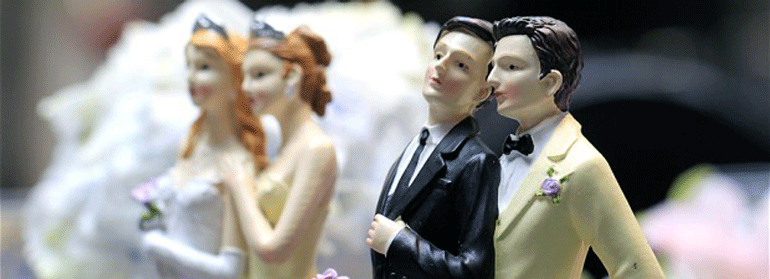Nobody should have the right to opt out of anti-discrimination legisaltion based on their religious beliefs, but it’s likely that in the forthcoming fight for gay marriage in Ireland, this is what certain campaigners will be calling for, says Adam Long.
A common theme runs through nearly every argument advanced by anti-gay equality groups against extending equality to LGBT people – namely, that giving us increased rights and protections is somehow a direct attack on their freedom of religion and conscience. Claims that LGBT equality is a ‘Western phenomenon that goes against local cultural practices’ are employed in African countries in particular, but by far the most regular attacks on the LGBT’s community’s desire for equal treatment are couched in selective and fundamentalist religious beliefs.
Indeed, the use of religious belief and values as a battering ram against LGBT rights is sometimes even legitimised by those generally sympathetic to the gay cause, who subscribe to the utterly false narrative that there are competing rights at stake here – gay rights versus religious rights – and that a sensible ‘balance’ needs to be struck between the two.
Fundamentally Flawed
That fundamentally flawed approach would allow the likes of businesses, for example, to opt-out of hard fought for anti-discrimination legislation, or public servants with anti-gay views to be given a derogation from their duties when it comes to dealing with LGBT individuals and couples. Not only is it wrong in principle to accommodate such discriminatory views in law, but it is also wholly unworkable. It opens up a Pandora’s Box where all sorts of prejudiced attitudes could be justified by invoking vague and selective religious beliefs to undermine the principle of non-discrimination and equal treatment for all.
During the recent equal marriage debate in England and Wales, attempts were made by those opposed to LGBT equality to introduce what became known as ‘wrecking amendments’. Having failed to halt the introduction of legislation allowing same-sex couples to marry, they turned their attention to pushing discriminatory amendments allowing registrars to opt-out of same-sex marriages and teachers in state schools to be given permission not to talk about homosexuality – a kind of reincarnation of the infamous ‘Section 28’ law that prohibited schools and local authorities in Britain from portraying homosexuality in any positive light, and which was repealed in 2003. Thankfully those amendments were comprehensively rejected, and as we move towards introducing marriage equality here in Ireland, we must ensure that similar attempts to enshrine in law the ‘right’ of public service providers to discriminate against the LGBT community, also fail.
The Opposite of Democracy
Freedom of religion (in addition to the equally important freedom from religion) is a fundamental tenet of any liberal democracy, but that freedom does not give one the power to infringe on the rights of others. It is fundamentally undemocratic to seek to enforce religious dogma of any hue through the civil laws of the state – in fact, it is the opposite of democracy and is rooted instead in theocratic thinking. Yet that is exactly what many opponents of LGBT rights seek to do.
Leaving aside how incredibly mean-spirited and narrow-minded it is to define your way of life through the denial of rights to others, it is also gravely insulting to those who genuinely suffer persecution – LGBT people in 77 countries are labelled as criminals simply because of their sexuality; in Russia, freedom of expression and assembly for the LGBT community and our allies is now illegal. And even in countries that no longer subject gay people to state-sanctioned homophobia, anti-gay beatings and attacks remain all too common. These are the real victims of persecution – not those who seek to disguise and dress up their anti-gay prejudices as religious conscience and expect the state to sanction such beliefs through the law of the land.
Simply put, a selective interpretation of certain religious texts is never a credible argument to deny LGBT people legal equality. So as the LGBT community and our allies continue to battle against outstanding inequalities, let us be confident and assured in our message. Our right to equal treatment is not a qualified one, nor is it subject to competing rights, as some so disingenuously seek to claim.
© 2014 GCN (Gay Community News). All rights reserved.

comments. Please sign in to comment.